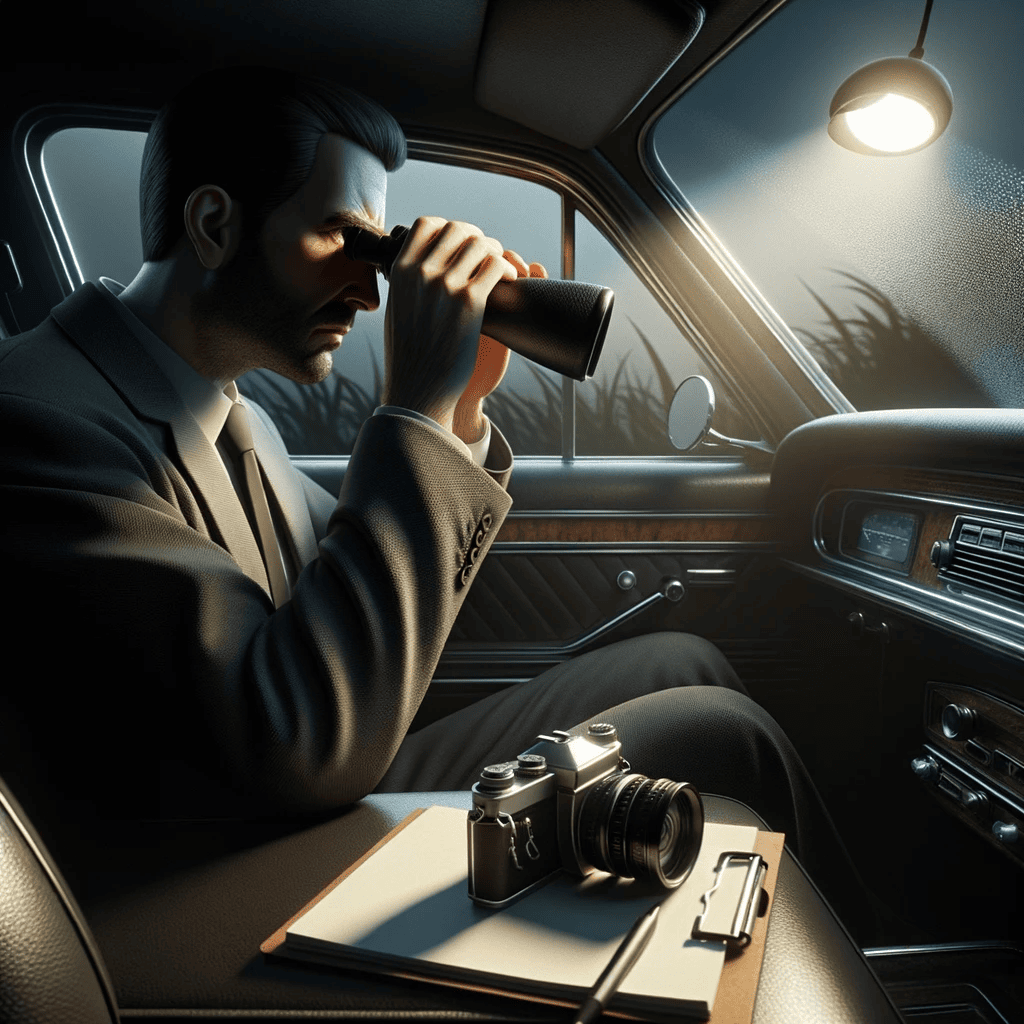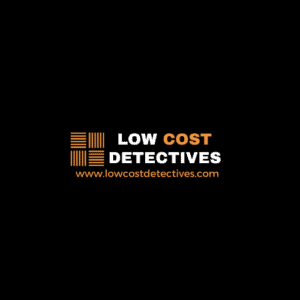In the area of private investigation, the utilization of proper surveillance techniques is of primary significance. Surveillance forms the backbone of any investigation, providing essential elements that aid in the process of gathering information. Several types of surveillance can be employed during an investigation, each serving a distinct purpose. These range from physical surveillance, where the private investigator maintains a watchful eye on the subject, to electronic surveillance like GPS tracking, which entails the use of technological aids to track a person or to gather data covertly.
Introduction: The Importance of Surveillance in Private Investigation
Yet, the real test of proficiency for a private investigator is their ability to conduct surveillance without giving away their presence. This covert operation hinges on adept use of basic surveillance techniques and understanding the different types of surveillance, thereby maintaining the investigator’s anonymity. Whether the surveillance is physical or electronic, understanding the essential techniques for conducting it properly proves critical. A robust surveillance methodology is both an art and a science, which when mastered, amplifies the effectiveness of a private investigation significantly.

Types of Surveillance and Technical Approaches
Private investigations necessitate a high level of surveillance techniques, and investigators use various methods to uncover the truth discreetly. For instance, stationary surveillance is one technique commonly utilized by private investigators, especially in cases of infidelity or other personal disputes. This approach involves keeping a close watch on a particular location, often through the use of hidden cameras or listening devices, to gather necessary evidence.
The Role of Tracking Devices and Counter Surveillance in Stationary Investigations
However, there are instances where stationary surveillance might not suffice. Here, tracking devices play a vital role. A tracker can detect movements of the individual under investigation, allowing the investigator to follow without being physically present. This serves a dual purpose: maintaining the subject’s confidentiality and enhancing the effectiveness of the investigation. A robust understanding of these surveillance methods and how to apply them is a significant aspect of pre-licensing training for private investigators. As part of their arsenal, private investigators also employ counter surveillance techniques to ensure they aren’t being watched and can conduct their investigation freely.
Ready to take action? For expert surveillance services tailored to your needs, visit our Surveillance Investigations page. Your peace of mind is just a click away.
The Role and Ethics of a Private Investigator in Surveillance
In the world of private investigation, mobile and digital surveillance techniques are key tools used to gather information. The Nationally Accredited Investigation Team Association (NITA) lays down ethical guidelines governing the use of these surveillance tools and methods. They help ensure investigators can use technical surveillance without overstepping privacy rights or violating other legal boundaries. The ethics of surveillance dictated by NITA ensures investigators maintain a high standard of integrity throughout evidence gathering processes, most especially in criminal investigations.
Balancing Ethics and Technical Expertise in Private Surveillance
The ethics and role of a private investigator stretch beyond mere possession and operation of surveillance equipment. The professional investigator must have a deep understanding of surveillance ethics, including but not limited to, navigating the thin line between permissible and invasive surveillance methods. Thus, making the difference between police surveillance and private surveillance clear, and protecting the rights of every individual involved. A strong ethical foundation combined with technical know-how and responsible use of surveillance tools positions private investigators as valuable assets in any investigation scenario.
Are you interested in learning about all things Honey Trap?
Investigation Techniques: From Surveillance to Counter Surveillance
When it comes to surveillance, private detectives must master a variety of approaches. Surveillance techniques are a key tool in their professional arsenal. Whether conducting an investigation that requires vehicle surveillance or conducting physical surveillance on foot, each method demands finesse and discretion. The definition of surveillance hints at its covert nature, which mandates that investigators blend seamlessly into their environment. This is a critical skill that can be bolstered by training, such as online courses designed especially for this purpose.
Mastering the Art of Surveillance and Counter Surveillance in the Digital Age
Private investigators need to take a comprehensive approach to surveillance. In addition to mastering traditional techniques, they also need to stay ahead of the curve in counter surveillance methods. With the digital age comes a new need for skills in online and electronic tracking. Beyond merely following a subject, private detectives also have to ensure they themselves are not being watched or tracked. This combination of surveillance and counter surveillance tactics ensures that investigators can carry out their duties effectively and discreetly.
For a comprehensive list of all the services we offer, feel free to explore our A-Z today.
Essential Tools and Equipment for Investigators
Private investigators must have more in their arsenal than what Hollywood often depicts. Indeed, the effective private investigator requires a diverse set of equipment and tools at their disposal to accomplish the surveillance job. The art of physical observation remains an integral skill, but the industry has vastly evolved, including physical tools with complex electronic monitoring systems. Video and audio devices are examples of such tools that allow investigators to get critical information without raising suspicion.
Leveraging CPO Tools for Remote and Effective Surveillance
CPOs, or Covert Physical Operations tools, facilitate subtle information collection. These tools include hidden microphones, disguised cameras, and GPS tracking devices. Furthermore, these modern technologies have made investigators less reliant on physical stakeouts, instead providing the ability to learn more about surveillance targets remotely. This shift towards electronic assistance is not just about fostering more operative ease; it enhances the chances of conducting effective surveillance. The emphasis, therefore, is not just on holding a wide variety of tools, but also on understanding their optimal use as a means to achieving investigative success.
Do you have Doubts Or Want To test Your Partners Loyalty?
Learn More About Effective Surveillance Practices
To enhance skills and stay current with new technologies and techniques in investigation, professional development programs are integral for private investigators. These programs often provide comprehensive training on how to effectively use various tools such as binoculars or CCTV to gather intel and information. As modern surveillance is not limited to physical observation, investigators should be adept at extracting information from digital platforms, particularly public social media. Scrolling through a suspect’s or group’s social media activity often provides fruitful insights.
Navigating Legal Boundaries in Technical Surveillance
There exists a thin line between ethical surveillance and trespass in private investigation. Therefore, while using any kind of technical equipment or technique such as binoculars or CCTV, it is always vital for investigators to be aware of the legal boundaries. For instance, Closed Protection Officers (CPO’s) must adhere to laws and regulations in order to gather information without stepping into legal trouble. As surveillance practices continue to evolve, understanding these legal implications (e.g., trespass) is especially crucial to maintain professionalism in private investigation.
Need professional surveillance services? Discover how we can help on our Surveillance Investigations page. Secure your peace of mind today.
Beyond Traditional Methods: Electronic Monitoring and Security Officers
With the ubiquity of technology, private investigators now habitually employ electronic monitoring as an advanced solution for tracking wrongdoings. This practice involves the covert observation of people and their activities. A common method involves gathering as much information as possible through observing an individual’s digital activity. This approach is particularly useful in cases related to computer crimes and other criminal activities wherein digital devices are employed. However, the use of such methods must be conducted lawfully and ethically, underpinned by just cause and executed with utmost respect for privacy norms.
The Modern Blend of Physical and Digital Surveillance by Security Officers
Security officers, on the other hand, combine the traditional surveillance approaches with advanced technology to offer close protection security. Rather than operating covertly, these professionals work openly to deter bad actors from accessing or damaging their clients’ property without permission. Their services are impactful in scenarios where electronic monitoring alone might not suffice, including industrial espionage and theft. This modern approach to surveillance merges the digital and physical realms, demonstrating how investigators have moved beyond traditional methods to adapt to contemporary challenges.
To learn more about our expertise and the team behind our successful cases, visit our About Us page.

Conclusion: The Future and Evolution of Surveillance Techniques
In the foreseeable future, advanced surveillance technologies, such as night vision and infrared video cameras, will likely become gold standards in the field of private investigation. Night vision technology is a crucial tool that enables investigators to operate undetected, even in the darkest conditions. Similarly, infrared technology can help in providing detailed imaging, even through obstructions such as smoke or fog. This technological advancement will help protect not only the investigators but also their clients, as they gather evidence to build cases.
The Future of Surveillance Education: High-Tech Tools for Next-Gen Security Officers
Enrollment counselors foresee cutting-edge surveillance tools becoming an integral part of the curriculum for upcoming protection officers. These tools will provide professional investigators with a much-needed edge in fulfilling their tasks. The importance of the role of security officers cannot be overstated, as they are often at the forefront of evidence collection and ensuring public safety. With high-tech tools in their arsenal, they have a better shot at cracking even the most complex cases, further highlighting their contribution to society.
Surveillance - External Links & Resources
Learn about the legal framework surrounding electronic surveillance by visiting the official Justice Department website. This resource provides comprehensive guidelines on the subject.
Gain a deeper understanding of surveillance by exploring its history on Wikipedia. This article offers a timeline of surveillance methods from past to present.
For a focused look at the evolution of surveillance in the United States, check out this Smithsonian article. It provides a concise yet detailed overview.
Surveillance Techniques FAQ'S
What is the importance of surveillance in private investigation?
Surveillance is a crucial tool in private investigation as it aids in gathering necessary evidence and information about a subject or situation. It can provide visual or audio proof and help to build a strong case. Surveillance techniques are especially important in matters of fraud investigation, infidelity cases, custody battles, and other legal matters.
What are the different types of surveillance and technical approaches used in private investigation?
Surveillance in private investigation can take many forms. Physical surveillance, such as following a subject or stakeouts, is a commonly used method. Technical surveillance, involving the use of technology such as GPS tracking devices, audio, and video recording devices, has also gained popularity. Some investigators may also use social media or online surveillance to gather information.
Can you elaborate on the role and ethics of a private investigator in surveillance?
A private investigator’s role in surveillance is to gather information without infringing upon a subject’s privacy rights. Ethically, they must respect the privacy and rights of the individuals under surveillance. They should not engage in any activity that could be considered harassment or stalking, and must always operate within the law.
How do investigation techniques vary from surveillance to counter surveillance?
Surveillance techniques primarily involve monitoring a subject to gather information, while counter-surveillance techniques are used to prevent or detect surveillance. Counter surveillance might involve methods like bug sweeping, monitoring for unusual behavior, and electronic countermeasures, among others.
What are some essential tools and equipment for investigators?
Essential tools for investigators can vary based on the nature of the investigation. Commonly used equipment includes video cameras, digital voice recorders, GPS trackers, binoculars, and sometimes even drones or other high-tech tools.
Where can one learn more about effective surveillance practices?
Many institutions offer courses or certifications in private investigation, which cover surveillance practices. Books, online resources, and on-the-job training are also excellent ways to learn about effective surveillance techniques.
How does electronic monitoring and security officers factor into modern surveillance methods?
Electronic monitoring and security officers are integral to modern surveillance. Electronic monitoring can provide continuous surveillance without the need for a physical presence. Security officers, on the other hand, can use surveillance to monitor for any suspicious or unusual activity and respond immediately.
What is the future and evolution of surveillance techniques?
The future of surveillance techniques lies in technology advancement. Drones, AI, and facial recognition technology are becoming increasingly common in surveillance practices. However, with these advancements come new ethical and legal considerations. Investigators will need to stay informed of these changes and adapt their practices accordingly.








